
12 Tours to Navigate Digital Geneva
Historically, Geneva has been the home of important thinkers, philosophers, and writers, from Voltaire and Rousseau, to Ferdinand de Saussure and Mary Shelley. Nowadays, International Geneva is also the place where more than 50% of the global digital policy discussions take place. Yet, the interplay between technology and humanity is not new in Geneva. In the past, actors met around the use of the telegraph, telephone, and radio, while today, the main tech-humanity meetings cover topics such as artificial intelligence (AI), data, and cybersecurity.
In November 2020, the Geneva Internet Platform (GIP) launched the Geneva Digital Atlas, a state-of-the-art mapping of current actors, processes, and legal instruments dealing with digital in Geneva. The Atlas showed that most of the issues and processes are cross-cutting and transversal to the work of the many organisations.
Because of this wide variety, in 2021, the GIP will help you navigate Geneva’s rich digital policy and cultural scene through monthly thematic discussions (‘tours’).
By clicking on the links of each tour, you can navigate Geneva through a specific lense. You also have the opportunity to contribute to the knowledge and resources under each tour by filling out the dedicated Google form. At the end of all our 12 tours, the Geneva Internet Platform will compile its research and your contributions into a final publication which will help us navigate digital Geneva by theme.

Calendar of tours
February 2021 | Historical and Philosophical Tour
Our first tour starts in the narrow streets of Geneva’s Old Town where Jean Jacques Rousseau was born in 1712. His book The Social Contract provides useful insights for our current discussion on the new deal for AI and other technological dilemmas.
A few kilometres away is the commune Ferney-Voltaire where Voltaire (the pseudonym of François-Marie Arouet) wrote some of his masterpieces. Like Rousseau, Voltaire lived in a time when science and technology began to shape society. Both tried to make sense of the profound changes of their era that were triggered by new developments in technology and science, by asking the same questions that we ask ourselves today: What are the potentials and limits of rationality and progress? How will the choices we make today impact the future? What should the contract between technology and humanity look like? Today, we are revisiting similar dilemmas and issues.
The impact of technology on society inspired many thinkers in Geneva, and many contributors to the evolution of society and technology once lived in Geneva. For example, the Geneva linguist Ferdinand de Saussure provided important building blocks for digital linguistics and machine learning through his study on the interplay between signs and content. The Argentinian writer Jorge Luis Borges, who lived in Geneva’s Old Town, introduced hypertextual navigation through knowledge in his short story ‘The Library of Babel’.
Our tour continues at the International Telecommunication Union (ITU), the oldest international organisation in the world, established in 1865 to manage cross-border telegraph traffic; the radio, telephone, and internet followed in the twentieth century.
In our 100 years of multilateralism, new technologies have been shaping the work of numerous international organisations dealing with health, work, trade, and other global issues.
In the 1920s, after the First World War, the League of Nations provided intensive coverage of technological issues. The League’s archives, stored at the UN Library, is home to myriad studies with insightful reflections on technology and society. Since 1945, the work of the UN and the specialised agencies in Geneva have been closely related to the unprecedented technological growth of nuclear and digital technology, as well as new developments in biology and other sciences.
To find out more and to contribute, visit the Historical and Philosophical Tour page.
March 2021 | Digital Standardisation and Technology Tour
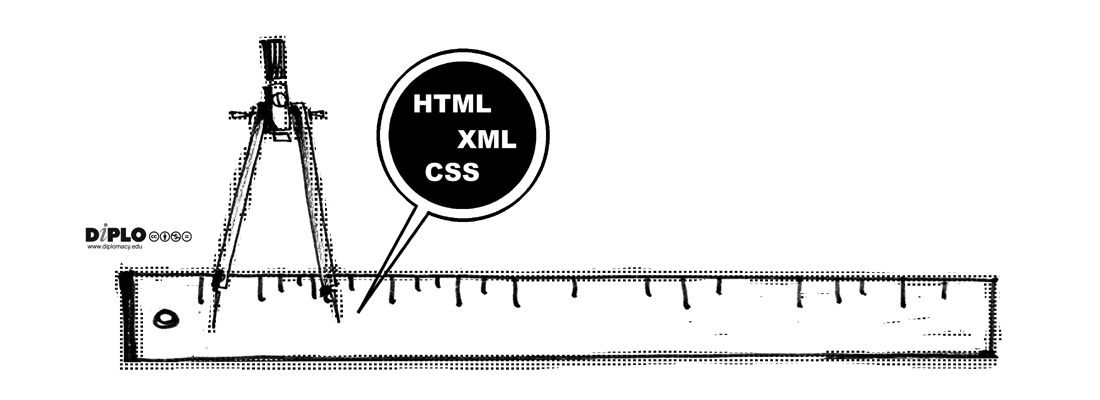
This tour has many stops, each of them can start at many places which outline the functionality of our mobile phones, computers, business processes, and governance. For well over a century, the International Telecommunication Union (ITU) has been setting standards for radio and telecommunications worldwide. A few kilometres away, the International Organization for Standardization (ISO) and theInternational Electrotechnical Commission (IEC) deal with standards for cybersecurity, business processes, and, increasingly, AI, blockchain, and other new technologies.The United Nations Economic Commission for Europe (UNECE) works on new standards for driverless cars. The European Computer Manufacturing Association (ECMA) develops standards and technical reports covering areas such as data presentation and communication, data interchange and archiving, access systems, interconnection, multimedia, programming languages, and software engineering and interfaces.
From the web-infrastructure point of view, Geneva hosts the European Organization for Nuclear Research (CERN), home to many major breakthroughs in science and technology. This is where Tim Berners-Lee invented the World Wide Web (WWW) in 1989. Many ideas behind cloud computing originated in CERN where a solution was developed on how to share data with university computing centres and research labs worldwide. Today, CERN excels in the latest sensor technology for detecting particles in its experimental tunnels. Like the WWW and cloud computing, the new sensor technology will find its way into wider use. While pushing the frontier of technological progress, CERN also promotes openness and inclusion, as well as science as a global public good.
Geneva is also the home of civil society organisations dealing with the standardisation and infrastructure of the internet. The Internet Corporation for Assigned Names and Numbers (ICANN) governs the core resources of the internet – the domain name system (DNS) and internet protocol (IP) numbers. The Internet Society (ISOC) supports and promotes the development of the internet as a global technical infrastructure, advancing applications, technologies, and open standards.
To read the report and watch the event recording visit the Digital Standardisation page.
April 2021 | Digital Economy: Trade and Finance Tour

The Economy Tour starts at the World Trade Organization (WTO) which sets the rules for global trade, including e-commerce, and continues to the International Labour Organization (ILO) which explores the impact of digital technology on the future of work. At the World Economic Forum (WEF), a place where global businesses address regulatory issues, digitalisation and the Fourth Industrial Revolution are the main pillars of its work.
The United Nations Conference on Trade and Development (UNCTAD) links e-commerce and development via the eTrade for All platform for capacity development, as well as the exchange of expertise. TheInternational Trade Centre (ITC) is the leading organisation in empowering small and medium enterprises in the field of e-commerce. Geneva has a very vibrant start-up scene centred on Fongit, a local innovation incubator.
We will also cross one of the key bridges connecting finance and the sustainable development goals (SDGs) via the International Network of Financial Centers for Sustainability (FC4S) and its annual summit.
To find out more about the event visit the Digital Economy page.
May 2021 | Digital and Environment Tour
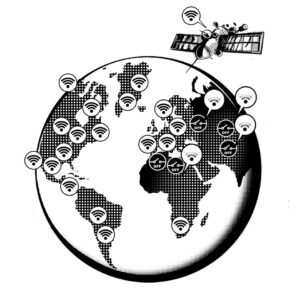
The interplay between the digital and the environment is not new. The Digital and Environment Tour covers two crucial elements: data and the circular economy.
As we will see during our upcoming Data Tour, the World Meteorological Organization (WMO) coordinates more than 10,000 land-, sea-, and air-based observation stations which collect vast amounts of weather-related data. Sophisticated AI tools are already being used for complex numerical analyses related to weather prediction, as well as for extrapolating trends that can help us understand climate change and the impact it has on our society. The WMO provides both a rich set of environmental data and the unique coordination of large data networks which can be relevant for other data projects around the world. The United Nations Environment Programme (UNEP) is currently starting preparations for the development of a global environmental data strategy, laying a global framework for the management of environmental data as a global public good by 2025.
Geneva’s Botanical Garden (Jardin Botanique), within the framework of Geneva’s 2030 Biodiversity Strategy, is addressing how the latest technological developments, especially those regarding the collection and analysis of aerial data, can help to favour biodiversity in the broader Geneva region.
We next visit the circular economy, namely, how ICT technologies can be better used to minimise environmental impact, as well as the amounts of waste of current production processes. Digital technology is not necessarily good or bad, and it has both a direct and indirect effect on the environment. The bright side is that digital technology, such as AI, big data, IoT, and blockchain, is revolutionising our approach to conserving biodiversity, producing clean energy, and managing natural disasters. At the same time, the impact of the ICT sector on the environment is being increasingly addressed. The ITU published numerous studies on the sustainability of the ICT sector and its applications.
To read the report and watch the event recording visit the Digital and Environment page.
June 2021 | Data Tour

The Data Tour brings us back to CERN, one of the world’s largest data processing setups which stores more than 30 petabytes of data every year, generated by the particle collider Large Hadron Collider. In July 2017, the centre passed the milestone of 200 petabytes of data permanently archived on its servers. CERN’s data is shared with scientific research institutions worldwide.
The next stop in our Data Tour is the World Meteorological Organization (WMO) which coordinates one of the most complex data networks in the world across its 192 member states and territories. Its Global Observing System (GOS) collects data from 17 satellites, thousands of aircraft and ships, and nearly 11 500 land-based stations, covering oceans, bodies of land, and the atmosphere. The WMO provides both a rich set of environmental data and a unique experience in coordinating large data networks which can be relevant for other data projects worldwide.
Data is becoming central to the work of the World Health Organization (WHO). The collection and protection of health data require new rules and policies. Health data is the basis for the development of a growing number of AI tools in the health field. In order to address the research, regulatory, and ethical aspects of data and digitalisation, the WHO established its Digital Health and Innovation Department and created a specific division: Division of Data, Analytics and Delivery for Impact.
To read the report and watch the event recording visit the Data page.
August 2021 | Artificial Intelligence and the Internet of Things (IoT) Tour
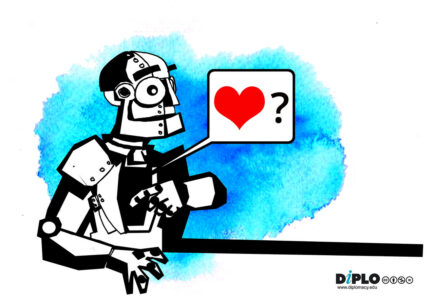
Artificial intelligence is widely used in various internet services. Search engines use AI to provide better search results, social media platforms rely on AI to automatically detect hate speech and other forms of harmful content, and online stores use AI to suggest products you are likely interested in based on your previous shopping habits. More complex forms of AI are used in manufacturing, transportation, agriculture, healthcare, and many other areas. Self-driving cars, programs able to recognise certain medical conditions with high accuracy, systems developed to track and predict the impact of weather conditions on crops – these all rely on AI technologies.
The ITU works on the development and use of AI, especially from the standardisation perspective, covering fields such as network orchestration and management, multimedia coding, service quality assessment, operational aspects of service provision and telecom management, cable networks, digital health, environmental efficiency, and autonomous driving. ISO and the IEC are also responsible for developing standards in these fields in regard to AI concepts and terminology, the bias in AI systems, and the assessment of AI system performances.
AI is more and more applied in the field of automated driving and IoT devices. The United Nations Economic Commission for Europe (UNECE) carries out several activities in the field of so-called ‘driverless cars;. It hosts multilateral agreements and conventions which set the requirements and use of these technologies (such as the Vienna Convention on Road Traffic). UNECE also works to harness smart technologies and innovations for sustainable and smart cities. In this regard, it promotes the use of ICTs in city planning and service provisions, and it has developed (together with the ITU) a set of key performance indicators for smart sustainable cities. UNECE also works to facilitate connectivity through sustainable infrastructure. For instance, it assists countries in developing smart grids for more efficient energy distribution, and it administers international e-road, e-rail, and e-waterway networks.
The World Economic Forum (WEF) carries out multiple activities in the field of AI, in particular paying attention to policy frameworks that accelerate the benefits and mitigate the risks of AI. Project areas include: standards for protecting children, creating an ‘AI regulator for the twenty-first century’, and addressing the challenges of facial recognition technology. Other WEF projects explore the safety, security, and standards of AI; AI ethics and values; and machine learning and predictive systems in relation to global risks and international security. For instance, WEF published the Framework for Developing a National Artificial Intelligence Strategy to guide governments in elaborating strategies for the development and deployment of AI.
As per other technological applications, AI can also be used negatively. The United Nations Institute for Disarmament Research (UNIDIR) studies the ‘AI and the weaponisation of increasingly autonomous technologies’. The UN Working Group on Lethal Autonomous Weapons Systems (LAWS) explores the technical, military, legal, and ethical implications of such systems.
The United Nations International Computing Centre (UN ICC) has created the Robotic Process Automation (RPA) Centre of Excellence which helps drive efficiencies across the entire UN system by enabling and scaling the adoption of RPA solutions.
The Geneva Science and Diplomacy Anticipator (GESDA) also works on AI as part of its Platform 1 activities, studying the emergence of quantum communication and computation, as well as advanced AI applications.
Finally, a short train ride from Geneva takes us to École Polytechnique fédérale de Lausanne (EPFL), a leading automation and AI research centre. A bit further, we reach ETH Zurich, another leading research and innovation university focusing on AI, cybersecurity, and other frontier issues.
To read the report and watch the event recording visit the AI and IoT Tour page.
September 2021 | Media Tour
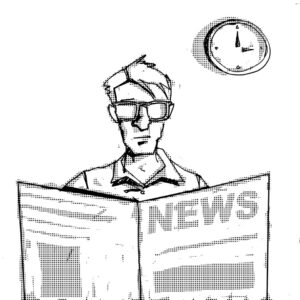
Our Media Tour starts with the European Broadcasting Union (EBU) which links the data and media sector, and organises a major annual event on big data and media.
Geneva also hosts many information outlets and broadcasting networks. Radio Télévision Suisse (RTS) handles the broadcasting of radio and television programmes for the francophone audience in Switzerland.
Heidi.news is a newspaper covering science, arts, and digital issues for the francophone audience. The journalistic platform Geneva Solutions focuses mainly on International Geneva following the main developments of the city’s rich ecosystem.
To read the report and watch the event recording visit the Media Tour page.
October 2021 | Legal and Governance Tour

Geneva is one of the leading commercial arbitration centres. The World Intellectual Property Organization (WIPO), together with the Internet Corporation for Assigned Names and Numbers (ICANN), has developed the Uniform Domain-Name Dispute-Resolution Policy (UDRP) which is used worldwide to solve intellectual property rights disputes related to the registration of domain names. At the University of Geneva (UNIGE), legal innovators work on the online justice system Massive Online Micro-Justice (MOMJ) as an alternative mechanism for dispute resolution on the internet.
TheInter-Parliamentary Union (IPU) helps legislators worldwide to introduce new legislation and policies on online privacy, cybersecurity, and e-commerce. In the field of intellectual property, WIPO deals with copyright-, patent-, and trademark-related issues, all of which have a significant impact on the digital world.
Geneva hosts several organisations and processes that participate in the governance of the digital space. The Internet Governance Forum (IGF) is the main annual event which gathers governments, businesses, and civil society to discuss digital policy issues. ICANN governs the core resources of the internet – the domain name system (DNS) and internet protocol (IP) numbers.The Swiss Digital Initiative (SDI) strengthens the trust in digital technologies and actors involved in digital transformation. In September 2019, the Swiss Global Digital Summit discussed ethics and fairness in the age of digital transformation.
To read the report and watch the event recording visit the Legal and Governance tour page.
November 2021 | Security Tour

Our tour includes important security-related processes such as the UN Working Group on Lethal Autonomous Weapons Systems (LAWS). The main background and policy research is provided by the United Nations Institute for Disarmament Research (UNIDIR). The Geneva Dialogue on Responsible Behaviour in Cyberspace aims to map the roles and responsibilities of actors in contributing to greater security and stability in cyberspace in the context of international peace and security.
Next door is Maison de la Paix which hosts several organisations focusing on cybersecurity, including the Graduate Institute of International and Development Studies (IHEID), the Geneva Center for Security Policy (GCSP), and the Geneva Centre for Security Sector Governance (DCAF). At the Campus biotech, the Cyberpeace Institute works to decrease the frequency, harm, and scale of cyber-attacks on civilians and critical civilian infrastructure, and increase the resilience of vulnerable actors.
Geneva also hosts the offices of numerous private sector companies such as Microsoft, Cisco, and Huawei.
To read the report and watch the event recording visit the Security Tour page.
December 2021 | Development Tour
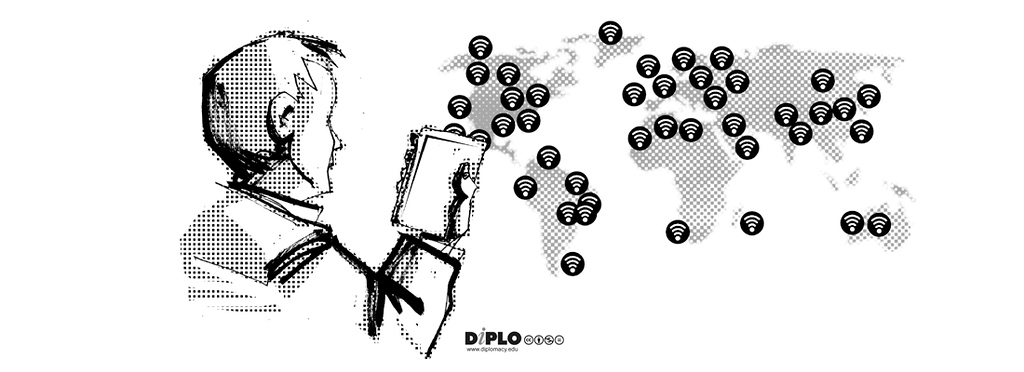
This tour revolves around each of the sustainable development goals (SDGs) which are covered by specialised agencies, NGOs and academia in Geneva. The United Nations Office at Geneva (UNOG) hosts gvadata.ch, an online space for sharing data related to the SDGs. The ITU, DiploFoundation, and the United Nations Institute for Training and Research (UNITAR) deliver a wide range of capacity development programmes in the digital field. The UN Commission on Science and Technology for Development (CSTD) deals with a wide range of digital policy issues, from smart cities to online education. The intergovernmental organisation South Center conducts research on key policy development issues and supports developing countries to effectively participate in international negotiating processes that are relevant to the achievement of the SDGs. The Consumer Unity & Trust Society (CUTS International) also focuses on the Global South and multilateral trade and regional cooperation. The Broadband Commission for Sustainable Development focuses on closing the digital divide and promoting broadband development in developing countries and underserved communities, ensuring that all countries reap the benefits of digital technologies.
To read the report and watch the event recording visit the Development Tour page
January 2022 | Digital Health Tour

The health field is becoming increasingly reliant on technology, not only to revolutionise healthcare, but also to continue and maintain its services and products at a societally accepted level. The interplay between big data and algorithms has the potential of leading to better, personalised healthcare services, conceivably making them more affordable and accessible.
As seen in the Data Tour, digital health and innovation are high on the WHO’s agenda. In addition to data-related work, the WHO collaborates with health information exchange standardisation bodies and organisations to promote sustainable investment into interoperable digital health technologies and systems. It does this by issuing digital accelerator kits and computable guidelines, classification, and recommendations on digital interventions for health systems.
The Global Fund to Fight AIDS, Tuberculosis and Malaria has put into place a series of key partnerships aiming to improve data collection, analysis, and management; increase automation; and build mobile platforms to promote behavioural change.
Regarding the deployment of AI-related technologies, the WHO has adopted numerous policy instruments, especially due to the spread of the COVID-19 pandemic. The International Digital Health & Artificial Intelligence Research Collaborative (I-DAIR), hosted at the WHO collaborating center at the Graduate Institute of International and Development Studies (IHEID), is working towards the creation of a neutral, trusted platform for enabling global research collaborations on digital health and AI for health. The platform should ultimately convene stakeholders to develop and share global public goods as well as solve problems for the inclusive, equitable, and responsible deployment of data and AI for health.
As the digital reality moves from ‘cable’ to wireless traffic (Wi-Fi and mobile), the WHO is also focusing on the impact of electromagnetic fields on human health. Moreover, since 2018, ‘gaming disorder’ has been included in the WHO’s International Classification of Diseases (ICD).
In the context of the COVID-19 pandemic, the WHO has tackled the spread of misinformation, also defined in this context as ‘infodemic’. The WHO strengthened its efforts in producing engaging reliable content and using digital, traditional media, and offline tools to disseminate it and engaged with its member states to curb the phenomenon.
‘GAVI, the Vaccine Alliance’ seeks to improve the formal identity, registration, and verification of children in developing countries. As part of its Innovation for Uptake, Scale and Equity in Immunisation (INFUSE)programme, GAVI studies the application of ICT technologies, in particular digital health cards and biometric records, to improve immunisation coverage.
To read the report and watch the event recording visit the Digital Health Tour page
February 2022 | Human Rights and Humanitarian Tour
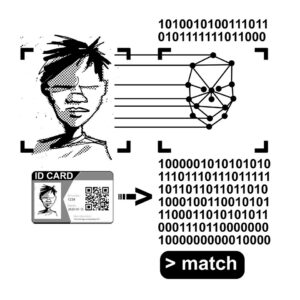
Our tour starts at the Palais Wilson, home of theOffice of the UN High Commissioner for Human Rights (OHCHR) which supports and organises the United Nations Human Rights Council (UNHRC), the main global body for discussing and monitoring the implementation of human rights. The UNHRC entered the digital realm by focusing on freedom of expression on the internet, followed by the right to privacy which came into focus after Edward Snowden’s surveillance revelations.
With a growing impact on society, digitalisation is extending to other human rights. In 2018, 22 of 56 UNHRC special procedures focused on the digital aspects of political, social, economic, and cultural human rights. A major new development is the discussion of human rights as the main way for guiding AI developments.
Geneva is the world’s humanitarian capital that we observe through a digital prism. The internet, data, and AI are part of conflicts and humanitarian crises worldwide. In conflict situations, data leaks can be a matter of life and death. New technologies bring new weapons and potential human suffering. A fast-growing need for policy and technological solutions has accelerated the work of humanitarian organisations in Geneva on the topic of digitalisation.
The International Committee of the Red Cross (ICRC) is the leader in data protection from both a technological and a policy perspective. The ICRC is also advancing the discussion on humanitarian law and the use of lethal autonomous weapons systems (LAWS). The Humanitarian Data Exchange (HDX) of the UN Office for the Coordination of Humanitarian Affairs (OCHA), the Global Humanitarian Lab of the United Nations Office for Project Services (UNOPS), the ICRC, the International Federation of Red Cross and Red Crescent Societies (IFRC), the International Organization for Migration (IOM), and many humanitarian NGOs run innovation centres, host hackathons, and experiment on a continuous basis with the use of digital technology in the humanitarian field.
To read the report and watch the event recording visit the Human Rights and Humanitarian tour page
